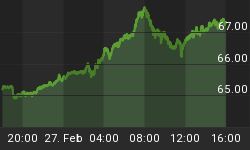Mark Carney's been hired to bang bankers' heads together...
Where have all good men gone
And where are all the gods?
Where's the streetwise Hercules
To fight the rising odds?
Isn't there a white knight upon a fiery steed?
Late at night I toss and turn and dream of what I need.
I need a hero.
We imagine Britain's chancellor George Osborne has been humming this tune to himself in recent days, judging by the comments he made earlier this week announcing the Bank of Canada's Mark Carney as the next Bank of England governor when Sir Mervyn King retires next year.
Carney is "the outstanding central banker of his generation with unparalleled expertise in financial regulation" Osborne said.
"He has got what it takes to help bring families and businesses through these incredibly challenging economic times...my responsibility was to get the best for Britain, and with Mark Carney we've got that."
But what makes Carney "the best"?
Part of the answer seems to rest on the fact that Canada came through the financial crisis of 2007-8 relatively unscathed, thus boosting Carney's reputation. Under his governorship, the Bank of Canada cut interest rates to record lows and supplied emergency liquidity to the banking system to prevent a collapse.
That in itself hardly makes him a maverick - the Bank of England and Federal Reserve made similar moves. In addition, however, Carney has become known as something of a financial regulation tough guy. He's a strong advocate for tougher leverage ratios for banks. He picked a fight with JPMorgan CEO Jamie Dimon last year, taking issue with Dimon's view that financial crises are an inevitability. He also chairs the Financial Stability Board, which aims to coordinate financial regulation at the international level.
This is why Carney is viewed as "the best". The Bank of England is to resume its traditional role of banking oversight, as the UK authorities seek to draw a line under the discredited tripartite system of regulation that saw the Bank, the Financial Services Authority and the Treasury collectively failed to avoid the crisis. The top man therefore needs to be a full-blooded, tooth-and-claw financial stability man. Bank of England deputy governor Paul Tucker might have got the job, but he became tainted by the Libor saga.
The choice of Carney is thus a logical one: he's the right man at the right time given the Bank's new priorities. Yet there is something unnerving about George Osborne's comments. The chancellor's rhetoric is a prime example of the cult of central banking, the idea that an economy can be cajoled into producing desired outcomes (growth, jobs etc.) so long as the right people control the levers. Central bankers as superheroes.
Monetary policy is of course important, but it is a blunt instrument. Osborne talks as if his new man can somehow make everyone better off, but it is hard to see how.
Some families are heavily in debt, some businesses desperate for credit to keep them afloat. Others have cash in the bank and are worried about it holding its value. Policies that help one group disadvantage another.
Sustained growth can make everyone better off, at least in theory. But central bankers don't produce anything themselves. The best they can do is try to create an environment in which growth might take hold.
When you have an economy with high levels of indebtedness, creating such an environment necessitates making some people worse off. The question is who. Do you liquidate companies, bankrupt families?
Or do you, fearing a debt-deflation spiral, figure out a way to extend credit where necessary, in the hope that sustained growth will kick in later and enable debts to be paid off? And if it doesn't, do you then let people and businesses go to the wall, or do you reduce the real value of debt, thus harming creditors?
Financial stability, Carney's strong suit, is of course important, and a desirable end in itself, but it will take time to achieve. In the short-to-medium term, the policies needed to achieve it could prove deeply unpopular in many quarters. Reining in excessive lending by banks flies in the face of efforts to get more money out of the door and into the economy.
The banks won't like it if Carney puts a harness on them and tells them it's for their own good. Neither will businesses that are denied loans, meaning politicians won't like it either. Many ordinary people will be deeply suspicious of his status as an ex-Goldman Sachs man.
How long before the Canadian is made a scapegoat? Credibility is key to central banking, and Carney will have his work cut out to maintain his. There again, if everyone does end up hating him, that might suggest he's doing something right.
It'll be interesting...















